DIWA, which stands for Digital Innovation for Women Advancement, recently marked its one-year anniversary since its launch by the Department of Information and Communications Technology (DICT) in December 2022. This milestone comes after DIWA made a significant impact by representing women in the field of technology at the International Telecommunication Union (ITU) in Bucharest in October of the same year, coinciding with the historic appointment of the first female ITU Secretary General, Doreen Bogdan Martin, since the organization’s inception in 1865.
The ITU, established on May 17, 1865, has been at the forefront of global efforts to allocate radio spectrum and develop international telecommunications standards, playing a pivotal role in shaping the development of communication technologies worldwide.
DIWA’s mission is to bridge the gender digital workforce divide prevalent in many economies. This divide arises from low enrollment of females in non-traditional fields like STEM courses, limited access to ICT infrastructure and services, and high costs of ICT tools and services. To address these challenges, DIWA focuses on providing internet access, enhancing digital skills among young girls, fostering structured linkages for women in ICT employment, promoting gender-sensitive human resource management practices, and engaging women technology role models as mentors.

In a virtual gathering to celebrate its one-year journey, Undersecretary Jocelle Batapa-Sigue expressed gratitude to all the advocates who have supported DIWA’s cause throughout 2023.
Batapa-Sigue said 2024 will be a more amazing year with the plans to launch DIWA Awards and DIWA Scholarships.

During the event, a one-year survey was shared, featuring feedback from DIWA discussion attendees from across the country.
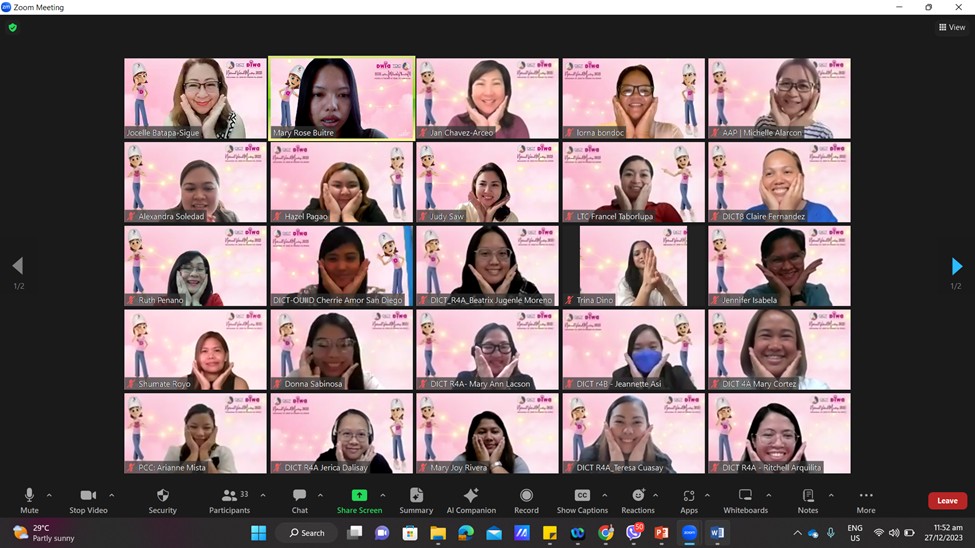

Feedback from the Digital Innovation for Women Advancement event attendees can be summarized into several key themes. Firstly, there was a strong desire for collaboration and inclusivity, with participants expressing eagerness to work with DIWA and integrate it with other organizations, emphasizing the importance of inclusivity in digital transformation efforts.
Secondly, the event had a profound impact on attendees, inspiring and empowering them, particularly women. DIWA’s vision and direction were commended for instilling hope in the future of women in technology, and the role of women in ICT was highlighted as a significant source of motivation.
Thirdly, the educational aspect of the event was highly appreciated, providing attendees with new insights into the role of women in the global ICT landscape. Events like these were recognized as essential in promoting gender equality and equipping women with essential skills.
Overall, the event was praised for its quality, organization, and international scope, with attendees finding it exceptionally well-delivered and engaging. Many participants were motivated to pursue further education in ICT-related fields, and there was a strong desire for future engagement, including the suggestion of hosting ‘Girls in ICT Day’ events in educational institutions.
While the feedback was overwhelmingly positive, some suggestions for improvement were noted, primarily related to time management. Nevertheless, the event left a lasting and profound impact on attendees, fostering a sense of empowerment, community, and inspiration among women in technology.
These categories showcase the positive impact of the DIWA event on attendees, highlighting the importance of such initiatives in fostering gender equality and empowering women in the field of ICT.
The recommendations for achieving DIWA’s objectives can be grouped into several key areas, each reflecting the collective desire for proactive engagement and empowerment of women in the tech sector.
Firstly, there is a call for Partnerships and Collaborations, encouraging DIWA to engage with regional women’s organizations, business chambers, Muslim communities, and indigenous groups to ensure inclusive participation and support.
Secondly, the importance of Program Expansion and Accessibility is highlighted. Expanding DIWA’s programs to reach women in provinces, conducting more seminars and interactive events, and offering subsidized or free training in emerging technologies are seen as critical steps in achieving broader impact.
Thirdly, Education and Training play a pivotal role. Suggestions include providing scholarships for ICT skills that align with job opportunities, sharing inspiring stories of women in ICT, and initiating coding programs for young girls, even starting as early as preschool.
Fourthly, Awareness and Outreach are essential. Organizing campaigns to educate SMEs and less privileged individuals on accessing resources, bringing ‘Girls in ICT Day’ to schools, and continuing to promote ICT advocacy in areas with low ICT engagement are viewed as necessary steps to create awareness and drive change.
Fifthly, Infrastructure and Support need to be addressed. This includes tackling potential infrastructure limitations and ensuring information sharing at the grassroots level. Expanding outreach to more educational institutions for training teachers and students is also emphasized.
Sixthly, Events and Engagement should remain a focus. Conducting more empowering discussions and workshops in various locations, hosting events in academic institutions, and engaging academia to offer short courses related to ICT are suggested to maintain momentum.
Seventhly, Digital Literacy and Leadership are crucial. Supporting on-ground digital literacy programs, nurturing women’s digital leadership mindset and skills, and empowering women in ICT careers and tools are all seen as integral components of DIWA’s mission.
Eighthly, there is a strong emphasis on Innovation and Technology. Facilitating workshops on modern technologies leading to employment, such as robotics, network design, web and mobile development, AI, and machine learning, as well as promoting responsible AI use, are suggested to keep DIWA at the forefront of technology.
Lastly, General Support is evident, with some participants expressing their overall support for DIWA’s goals and objectives, highlighting the importance of a unified effort in driving positive change in the tech industry.
As DIWA embarks on its second year, it remains a beacon of hope and a catalyst for change, continuing to create opportunities and empower women in the ever-evolving world of technology.
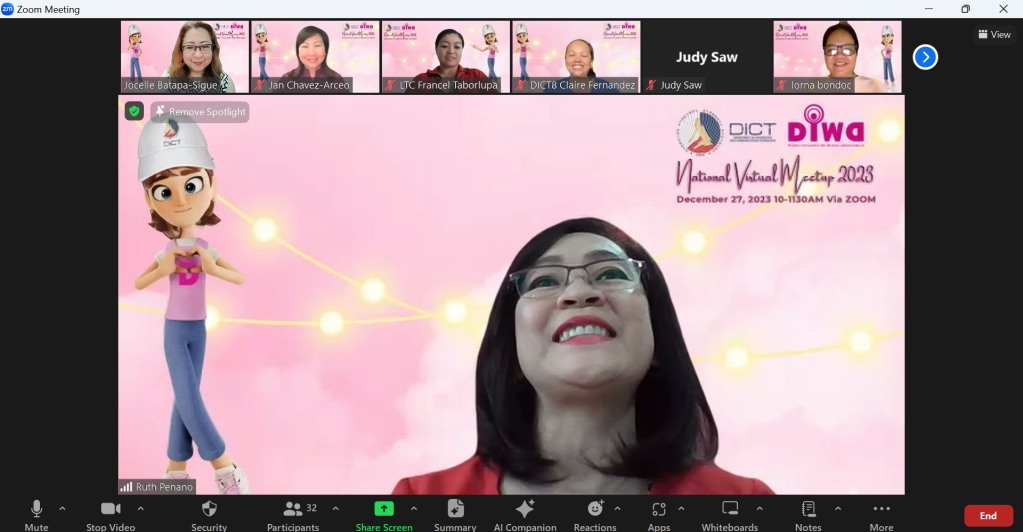

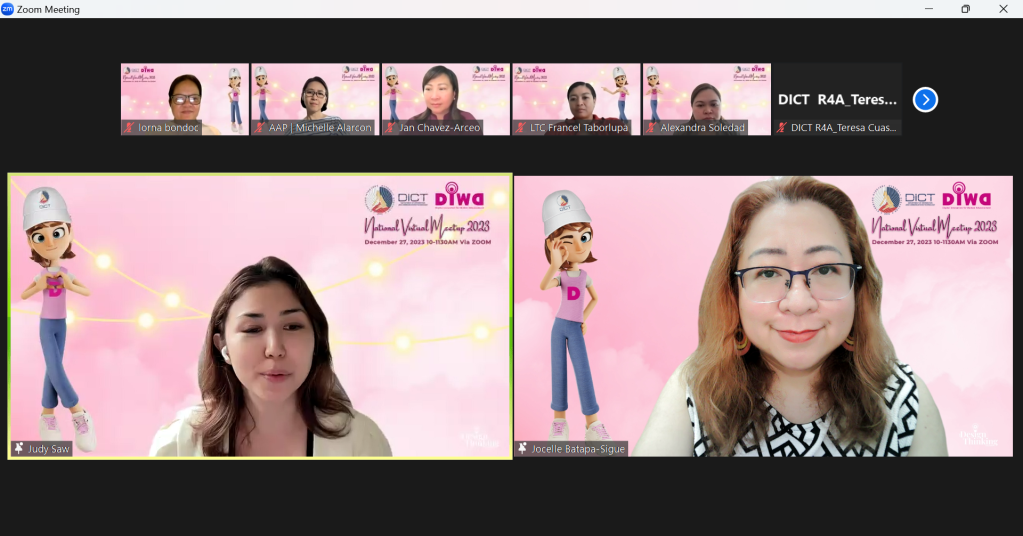
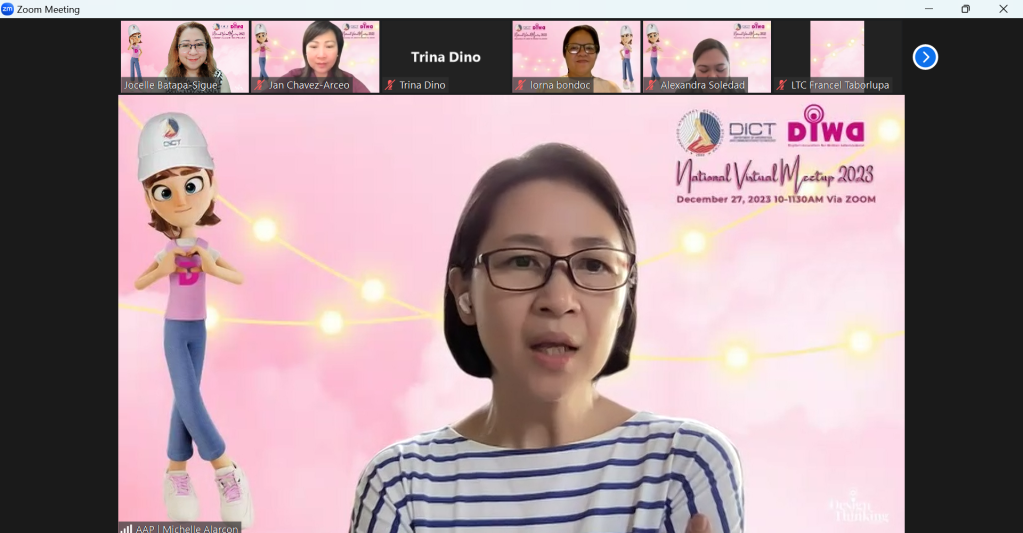

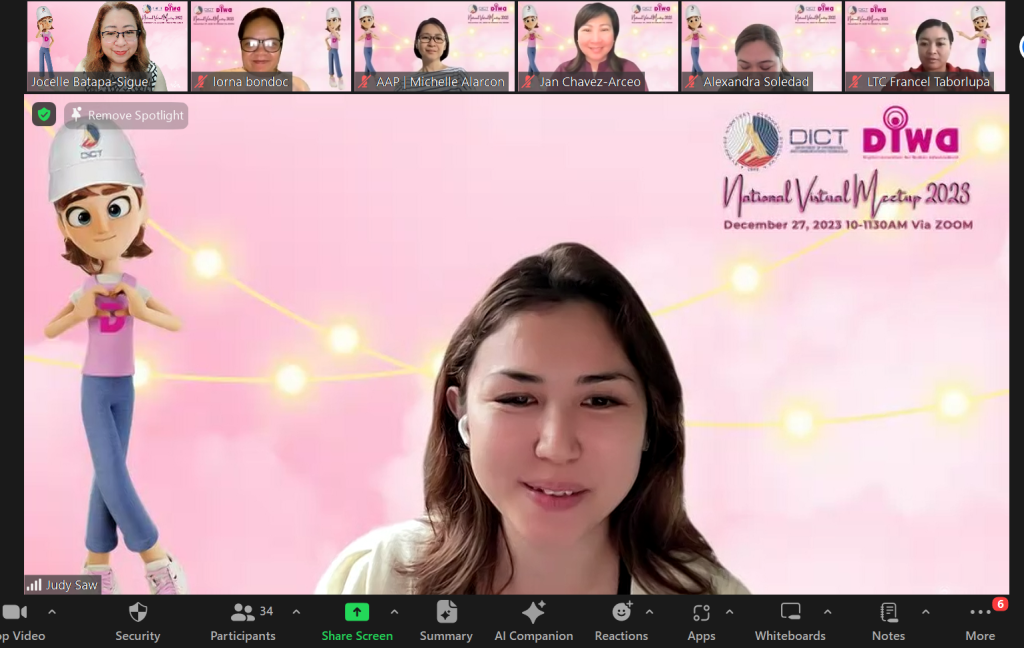
DIWA Launch on December 2022





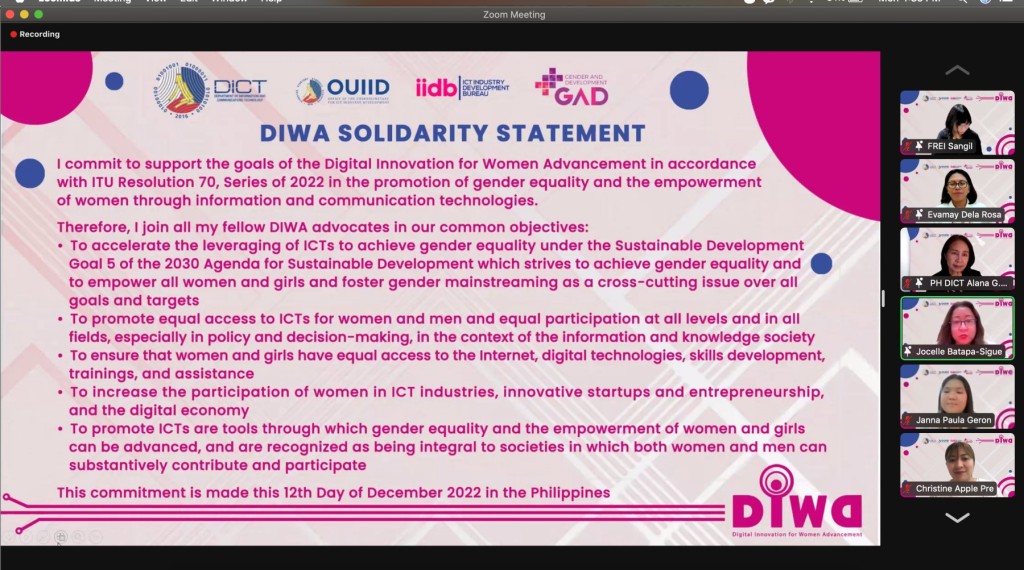
DIWA Gallery



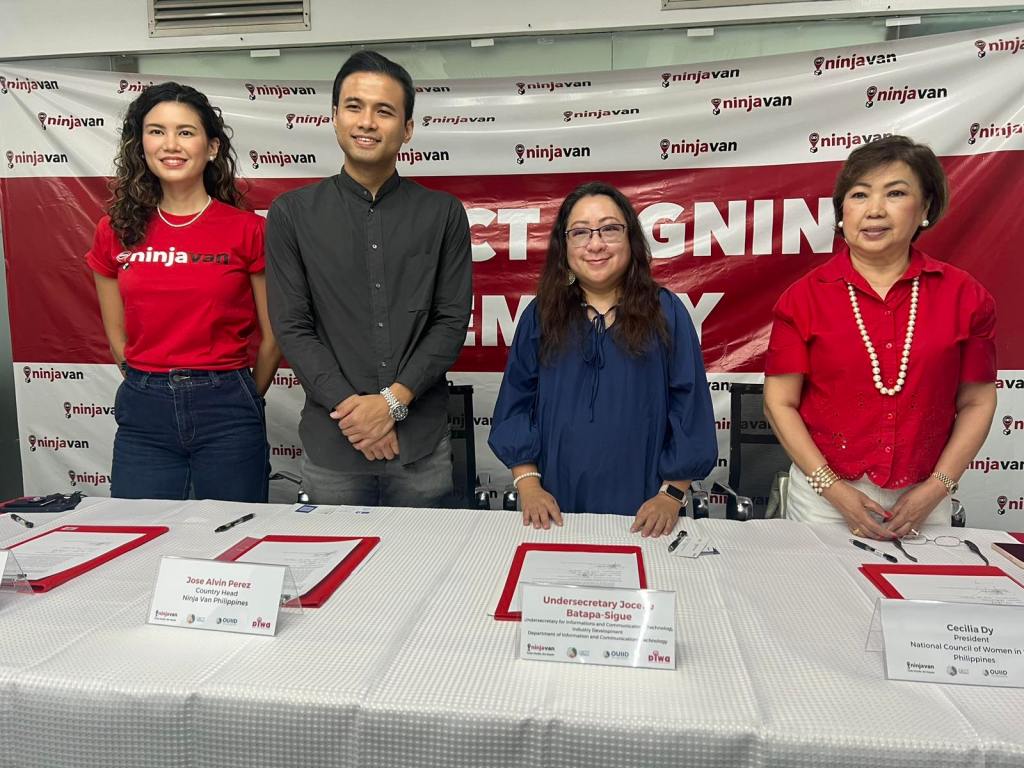




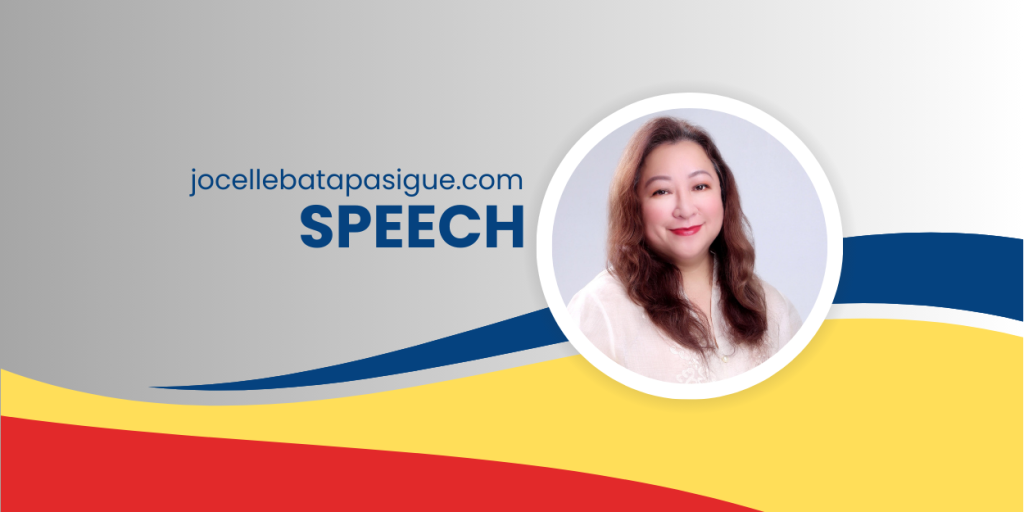


Leave a comment